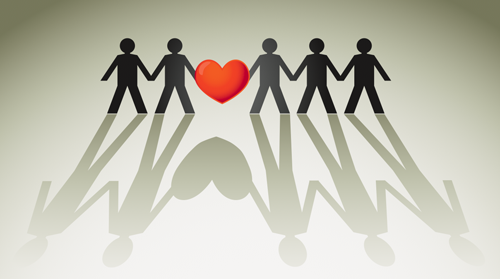Sam Fuller, an Oakland high school student writing for Youth Radio, has penned a quite insightful piece on polyamory, jealousy, and evolution. Fuller's interested in the subject stems from a female friend of his who, at one point, was in a polyamorous relationship. Wanting to know more about the role of jealousy, he interviews Dossie Easton (author of The Ethical Slut) and evolutionary psychologist David Buss. Both have different views of jealousy and its role: Easton wonders why jealousy is the sole deal-breaking emotion in relationships, while Buss sees jealousy as a biological defense mechanism that protects relationships.
Deciding to do his own bout of research, Fuller distributes a questionnaire to 21 peers, measuring their jealousy scores. While the average score is a 56, his friend Kina's score is 23 -- making her much less jealous than the others.
Kina's survey results made me wonder: had being poly and working on her insecure feelings actually made her a less jealous person? When I asked her about it, Kina said she thought it had, and she was glad for it. "Jealousy is just a counterproductive emotion," she said. "It doesn't make me happy."
Of course, evolutionarily speaking, jealousy doesn't work by making you happy. It works instead by creating an unhappy feeling, a feeling that your partner is threatening to reproduce and raise offspring with someone else. And once you have that feeling, you need to do something about it, whether it's something immature, like attacking the person flirting with your partner, or mature, like talking to your partner about it.
In Kina's case, she found ways to get rid of her jealous feelings, and that's made her feel happy. In the end, evolution aside, that's the question that mattered most to me.
Read the rest at Youth Radio.
 It's the third year for Atlanta Poly Weekend! Taking place March 15 through 17th at the Holiday Inn Perimeter in Atlanta, this conference brings in the foremost speakers to educate the poly-friendly community on matters regarding the family, the law, and social interactions and justice for those in the poly community.
It's the third year for Atlanta Poly Weekend! Taking place March 15 through 17th at the Holiday Inn Perimeter in Atlanta, this conference brings in the foremost speakers to educate the poly-friendly community on matters regarding the family, the law, and social interactions and justice for those in the poly community.

